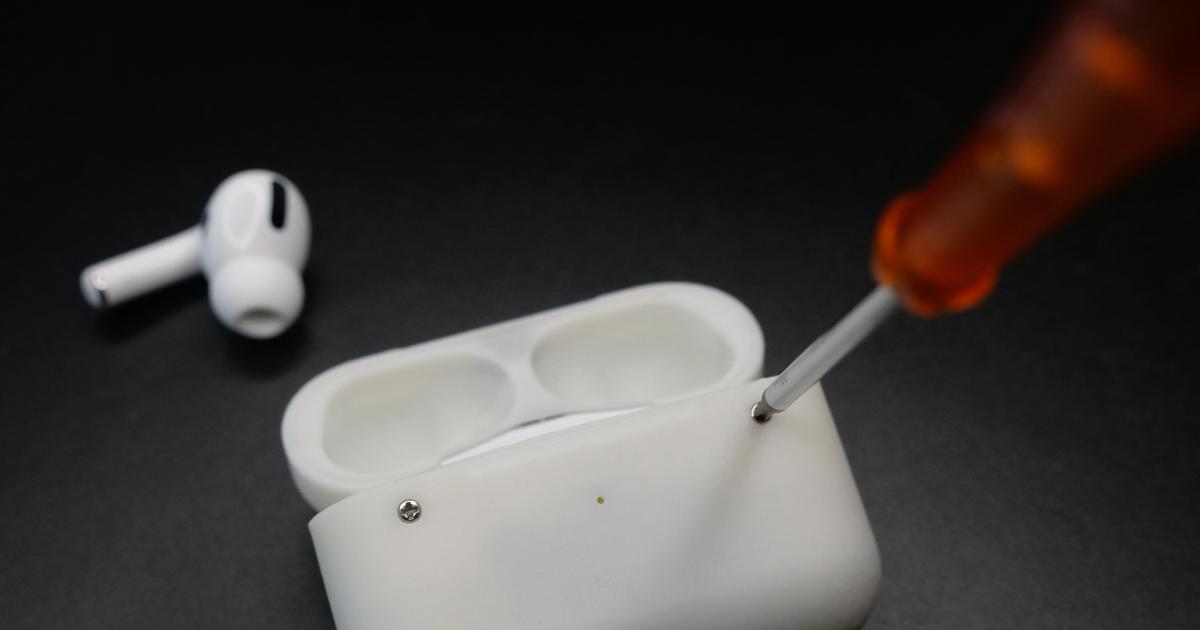The man behind the USB-C iPhone rebuilt the AirPods Pro case to make it repairable - 3 minutes read

Robotics engineer Ken Pillonel, known for creating a makeshift USB-C iPhone and AirPods, has revealed his next project. The modding wunderkind has deconstructed Apple’s AirPods Pro case and built a custom repairable version. Pillonel is sharing the design for free, allowing enterprising self-repair enthusiasts with a knack for engineering to make their own.
Pillonel has already tackled the AirPods Pro with a custom replaceable printed circuit board (PCB). However, his new project attempts to dissect the earbuds’ entire case, offering a complete blueprint for others to do the same — with 3D-printed sections and a few (cheap) afterparty parts. “Most gadgets are designed without repairability in mind, unlike the durable technology of the past that seemed built to last,” Pillonel wrote, noting that iFixit gave the second-gen AirPods Pro a dismal zero repairability score. “It is troubling to see design choices like non-replaceable batteries, glued-in components, and a lack of transparency in public information leading to the rise of ‘fast electronics.’”
In response, the engineer took on this latest project “to demonstrate how one of the most popular gadgets today — Apple’s AirPods Pro — could have been easily made repairable with minimal effort.” His stated goal is to inspire consumers and multi-billion-dollar corporations (ahem, Apple) to treat technology less like a locked-down disposable commodity and more like something one can tinker with, learn from and — with the right skills — repair themselves. Of course, a central component is using screws and nuts instead of adhesives to create a makeshift case you can crack open and fix down the road.
Ken Pillonel / Exploring the Simulation
Pillonel says this was one of his most challenging custom projects yet, as he had to create precise scans of the case’s every component. As he explains in the video below from his YouTube channel, some of the case’s parts proved especially difficult with complex curves that a simple caliper and basic 2D scans couldn’t quite nail down. He even detailed his quest for finding the right spring-loaded contact pins to charge the buds and an affordable 3D scanner to capture some of the more oddly shaped parts. I recommend a quick watch to anyone curious about sustainability and the nuts and bolts behind iconic consumer tech gadgets. (Remember that such tinkering will void your warranty, and you should probably only give it a shot if you’re experienced with electronics repairs.)
“I am thrilled to make these repairable designs available to the public at no cost, encouraging individuals and manufacturers alike to prioritize repairability in their product development,” Pillonel wrote today. “Together, we can work towards a circular economy that not only minimizes electronic waste but also fosters a culture of conscious consumption and responsible tech innovation.” You can peruse Pillonel’s designs and storefront for replacement parts on his website.
Source: Engadget
Powered by NewsAPI.org